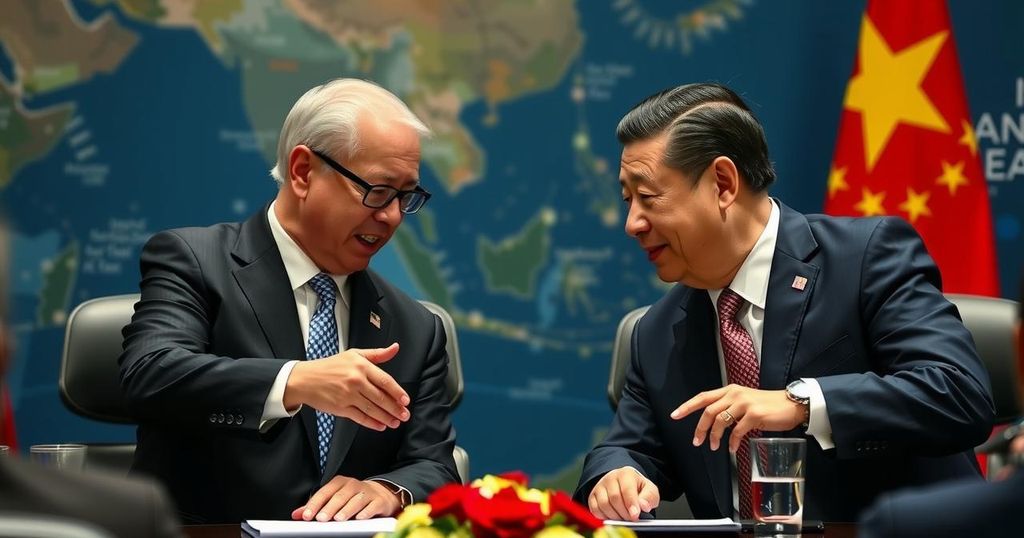President Biden and China’s Xi Jinping met for the last time during the APEC summit in Peru, discussing North Korea’s relationship with Russia and future U.S.-China relations under the incoming Trump administration. Xi expressed concerns about the shift towards protectionism while emphasizing the need for stable bilateral communication. Biden reflected on their historic relationship and the significance of ongoing dialogue to avoid conflict amid growing global challenges.
In a significant conclusion to their diplomatic exchanges, U.S. President Joe Biden and Chinese leader Xi Jinping met for the final time on Saturday during the Asia-Pacific Economic Cooperation (APEC) summit held in Lima, Peru. The discussions centered around various pressing issues, including the impact of North Korea’s actions and its relationship with Russia. While Xi’s remarks subtly indicated apprehension regarding the impending administration of President-elect Donald Trump, he expressed China’s readiness to collaborate with the new U.S. leadership to ensure constructive communication and mutual cooperation.
Xi emphasized the importance of a stable U.S.-China relationship, which he deemed essential not only for the two nations but also for global stability. His call for collaboration was met with Biden’s acknowledgment of their long-standing relationship. Biden reflected on the candid nature of their conversations while underscoring the significance of dialogue in averting misunderstandings amid fierce competition between their countries.
The meeting, hosted by China, marked a continuation of diplomatic efforts amidst growing tensions over multiple issues, including technology transfer, human rights concerns, and Taiwan’s status. There is much speculation regarding how U.S.-China relations will unfold under Trump, particularly with his protectionist trade agenda looming on the horizon.
As both leaders set the tone for future engagements, Biden’s administration is expected to advise Trump’s incoming team on effectively managing the complex and increasingly competitive relations with Beijing. The backdrop of the meeting included ongoing concerns over North Korea’s military agreements with Russia and its missile tests, with Biden pushing for a stronger Chinese position in influencing North Korea.
Overall, the encounter highlighted the intertwining of U.S. and Chinese strategies at a delicate juncture that will shape international relations moving forward.
The final meeting between President Biden and President Xi occurs against a backdrop of escalating geopolitical tensions brought about by North Korea’s military alliances and the implications of Trump’s protectionist policies. This meeting at the APEC summit provides insight into the future trajectory of U.S.-China relations, punctuated by trade disputes, military cooperation, and broader global stability issues. The significance of their relationship and its implications for global diplomacy were focal points of this encounter.
The concluding meeting between Xi and Biden underscores the delicate dynamics of U.S.-China relations amid a changing global landscape. The leaders aimed to navigate the complexities of bilateral ties while preparing both their nations for future collaboration and competition. The focus on North Korea and economic policies further illustrates the challenges ahead, with both sides urging communication and cooperation to prevent conflict. As transitions occur in U.S. leadership, the path forward remains uncertain but pivotal for international relations.
Original Source: www.pbs.org






